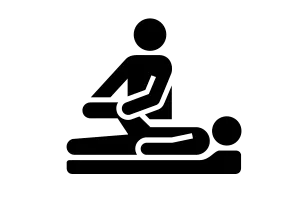
Knee pain is an issue for many people, and in the vast majority of cases, those affected by this problem would often consult a physician in order to determine the best possible approach to treatment.
While seeing a reputable physician is absolutely paramount, some might jump the gun a bit too quickly and recommend surgery before exploring other less invasive options.
In many occasions, surgery might be the correct (or even the only) answer, but there are some cases which don’t really require surgery at all.
Just to offer you an example, meniscus tear surgery is one of the most popular knee operations across the United States, although it doesn’t really repair rips, according to a study from the New England Journal of Medicine ”.
The reason why this happens is that some physicians seem to rely a bit too much on MRI scans, and less on actually identifying the symptoms in a patient.
The truth is that the vast majority of knee injuries and related pain could be treated with physical therapy, which is arguably less invasive and less expensive.
In addition to doctors recommending surgery when it is not really needed, some of them might even push you to take medication that might only mask the pain, without providing real results. Such medications are often promoted heavily by the big pharmacy lobby in countries such as in the United States, but such products could present harmful side effects.

Although some swear by the efficiency of painkillers as a long-term pain management solutions, it is never a good idea to depend on over-the-counter meds or use them very frequently. When taken for an extended period, these substances could present extreme side-effects and have adverse consequences on your health. For instance, excessive intake of ibuprofen has been shown to threaten the health of users’ joints over time. The same way these medications can suppress pain, they also impair other significant bodily processes that are considered essential to the natural healing process.
While physicians might push some big-name painkiller on you, they might also scare you away from natural remedies. Many studies stand by the effectiveness of natural products, such as dietary supplements. Even if you are skeptical about such products yourself, it is important to note that the vast majority of such natural products are devoid of the many dangerous side effects that are often associated with painkillers.
The benefits of physical therapy over surgery
As mentioned earlier, physical therapy could provide a wide range of benefits over surgery. First and foremost, physical therapy is not as invasive as a surgery, and it is accessible to people of all backgrounds. Most forms of physical therapy are inherently low-impact physical exercises, meaning that they can provide excellent results, without requiring excessive strain or athletic efforts on the part of the patient. This unique characteristic makes physical therapy perfect for all kinds of people – young, old, man, woman, child…you name it.

Manual manipulation could be an excellent remedy for knee pain. Physical therapists oftenuse massage to provide soothing comfort and pain relief, which aren’t only great to manage pain, but also to reduce it with frequent sessions. In addition to attending some physical therapy sessions, there are many things you can do at home, without spending extra money to keep improving your knee pain.
Physical disciplines such as yoga and mild fitness could help you stay active and keep a healthy and balanced routine. Yoga is a very effective way to increase knee strength and flexibility in a safe and controlled manner. Joints are meant to move and if keep sedentary, the knee joint will deteriorate quickly.
Having said that, not all doctors agree on the benefits of physical therapy, and quite surprisingly so. Some physicians might even go as far as discouraging their patients from even considering physical therapy. While some doctors will advise you to rest and remain inactive, it has been shown that a sedentary and inactive lifestyle can weaken the musculoskeletal system of a person and decrease joint flexibility. Even mild physical therapy could considerably speed up the recovery process and improve a person’s response to pain.
A healthier diet and weight loss could help you fight the pain.

In some cases, knee pain can get worse if you are overweight. Consider that the more you weight, the harder your muscles and bones will have to work in order to sustain your body adequately. Excessive body weight can cause the knee to be subjected to more pressure, thus increasing the pain. If you embrace a healthy diet and set out to lose some weight, you might experience significant pain reduction. Of course, this would not be the only benefit of weight loss. You will undoubtedly find that you might be able to improve your life in many ways by embracing healthier nutritional habits. If you lose weight, you will look and feel much better, and the benefits of physical therapy will be even greater if paired up with a healthier lifestyle.
A health-conscious routine could indeed be a great addition to any form of physical therapy.
There are many alternative solutions and other options that your physician might not have considered. Physicians and patients alike should keep an open mind and think about low-impact alternatives that pose fewer threats and side-effects, before immediately considering extreme solutions such as surgery or painkillers.
If you are someone you know is suffering from knee pain. Give a call at (800) 930-8803 to set a Free Discovery Visit with one of our knee pain specialists or sign up here for your Free Discovery Visit now.
Reference Links:
http://www.nejm.org/doi/full/10.1056/NEJMoa1305189?query=featured_home&


